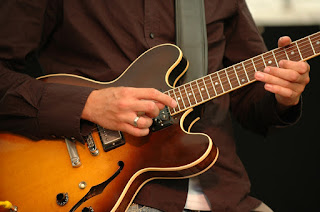10, 000 Hours To Greatness?
The 10,000-hour rule, which states that it takes 10,000 hours of
appropriately guided practice to become an expert in any skill, was popularized
by Malcolm Gladwell in his 2008 book Outliers. But some tasks and
accomplishments take more time, and others take less. And as a field develops
more experts, you have to know or do more over time just to keep up. That means
more hours of deliberate practice than your peers, so 10,000 hours may not be
enough. It certainly isn’t a threshold to automatic musical expertise.
From a developmental perspective, the first step to becoming an
expert is being introduced through play to the field of interest. Parents play
a crucial role here, instructing their children as to the purpose of the items
they are playing with, such as a piano, guitar or harmonica. Add to this the
family values of discipline, hard work, responsibility, and achievement, which
are instilled early. Parents also know that praise is powerful to increase
motivation, and that the satisfaction of developing a skill can help keep a
child going for more.
But once interest is developed, the next step is to get lessons
from an expert teacher—but one who can maintain interest and motivation in the pupil
while skills are being built. Parents at this stage remain important to provide
discipline and structure, such as helping the child establish practice routines
and giving them praise, support, and encouragement to keep motivation high.
To strengthen commitment, parents will need to positively push
their child to prioritize practice over other activities. But when is pushing
helpful, and when is it too much? It’s difficult to define the line exactly,
but ultimately the motivation must come from within the child, or else it won’t
last. So, discovering and emphasizing the aspects of playing music that the
child loves most—so that he or she owns his or her performance and is motivated
from within—is best.
As these students progress, challenges like exams and auditions
are needed to take them to the next level, as is an increase in practice hours.
At this point, those on track to become virtuosos will show a tremendous
appetite for work. They start to identify themselves with their area of growing
specialization—as a Flamenco, jazz or classical guitarist for example.
It is in this early or mid-teen period that future greats make a major commitment to becoming the best they can be, seeking the best teachers or schools for training, even if it means moving across the country. The student faces expectations that gradually increase until they are doing as much as humanly possible to improve. At this point, the motivation lies solely within the student to get out to the very edge of human ability and rank among the best.
The path of virtuosity is walked by very few. The key factors
are beginning young with total family support and expert tuition at every
stage.



Comments
Post a Comment